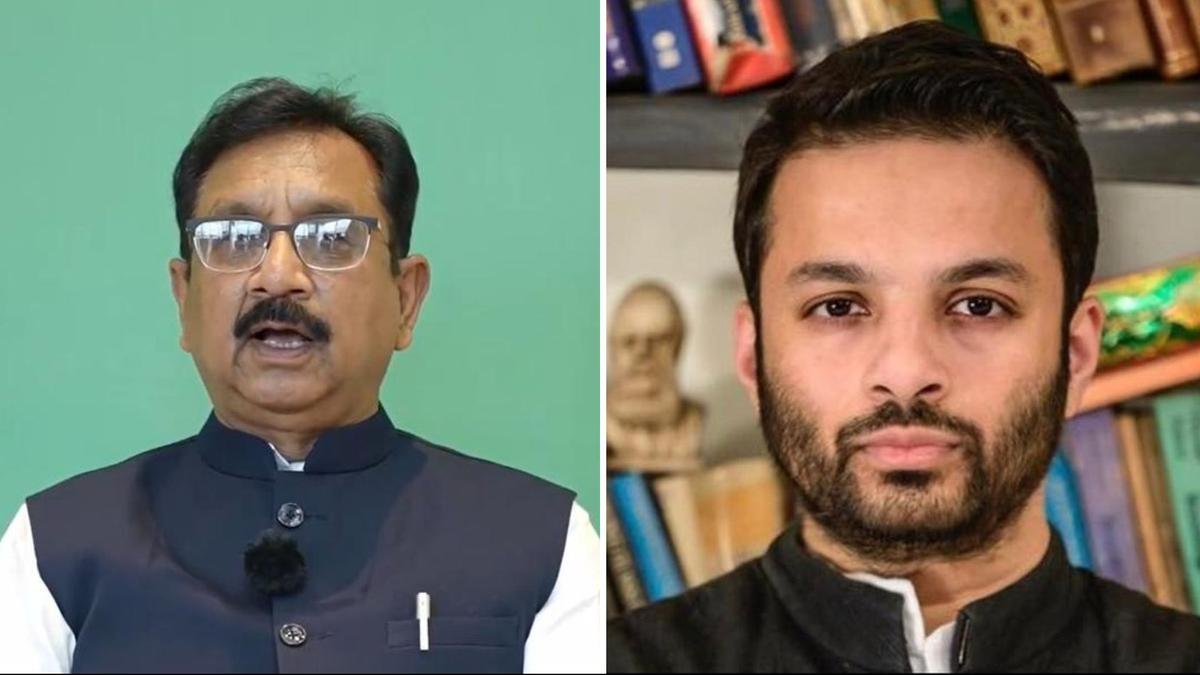(This is the latest edition of the Political Line newsletter curated by Varghese K. George. The Political Line newsletter is India’s political landscape explained every week. You can subscribe here to get the newsletter in your inbox every Friday.)
Unless we defend the rights of both Vijay Shah and Ali Khan Mahmudabad to say whatever they want to, neither can be defended rationally
——
There are two Special Investigation Teams (SIT), each comprising three IPS officers investigating two people, on the directions of the Supreme Court of India: Madhya Pradesh’s BJP Minister Vijay Shah and Ashoka University professor Ali Khan Mahmudabad.
The SC order has specified that the SIT in Madhya Pradesh must be of directly recruited IPS officers from outside of the State cadre. The implied equivalence of these two cases in the SC approach — that the police can investigate alleged criminality premised on the idea of excessive speech —has been disconcerting for many people. Those who were outraged by Mr. Shah’s comments, which the SC rightly described as “crass, thoughtless,” wanted legal action against him. Broadly, the same set of people were also outraged by Haryana police arresting Mr. Mahmudabad.
The interesting spectacle of six IPS officers trying to parse through the sentences of two people to investigate criminality in them leads us to the question: what exactly is freedom of expression. Can there be selective freedom of expression? Should hate speech be allowed in a civilized society? If some speech must be restricted, who gets to decide what is allowed and what is restricted? As we have seen in recent days, the Congress government in Karnataka and the BJP government in Haryana have different standards of what speech can be allowed.
We need to defend the rights of both Mr. Shah and Mr. Mahmudabad. Free speech cannot be restricted to what one person likes; hate speech cannot be defined as what another hates. Unless free speech is absolute, including — and especially — for views that are dissenting and offensive, there is no meaning in it. A police inspector or a random political actor can initiate a case, and the rest will depend on the social capital and relative power of the side that claims to be aggrieved and that of the alleged aggressor. A free speech supporter cannot call for punishment of Mr. Shah and protection for Mr. Mahmudabad.
Article 19 of the Indian Constitution guarantees that all citizens shall have the right to “freedom of speech and expression,” and then goes to add multiple caveats. “Reasonable restrictions” on free speech include “the interests of the sovereignty and integrity of India, the security of the State, friendly relations with Foreign States, public order, decency or morality or in relation to contempt of court, defamation or incitement to an offence.” This is echoed in criminal laws and Mr. Mahmudabad was actually arrested on charges of endangering the country’s sovereignty and integrity and promoting enmity between different groups, among others, under the Bharatiya Nyaya Sanhita.
Article 19 also gives citizens the right to “assemble peaceably and without arms,” again with caveats similar to those mentioned above. As it happens, the government of Assam has decided to arm indigenous communities. In this case, the state is abdicating its role of providing security and encouraging select groups to arm themselves. This is not new. In Kashmir to fight back separatists, and in Chhattisgarh to neutralise the Maoists, local communities were armed. The broader question is the power of the state to decide what are legitimate arms and what is legitimate speech.
In the US, people have much more power than in India to bear arms and to speak freely. There are restrictions there too, but they are more narrowly defined. Arbitrary measures are not unheard of, but some dependable precedents are in place, evolved through judicial disputes over the decades. But the Republicans and Democrats both want to restrict speech in the US — they differ on what kind. Antisemitism and Islamophobia are recurring grounds for restricting speech in many contexts in the West, including by the state.
In India, commenting on Hinduism or nationalism can be adventure intellectualism these days. The default liberal position, however, should be that all speech is allowed. If there are any restrictions, they must withstand objective reasoning.
Federalism Tract: Notes on Indian diversity
Tongue lashing
Kamal Haasan is set to enter the Rajya Sabha. But he made news for other reasons. His statement that Kannada is born out of Tamil triggered a reaction in Karnataka. In fact, for all the talk around Dravidian languages and culture, the linguistic pride of each State and conflicts between regions within States have been politically consequential. The Telugus wanted separation from the then Madras State, and their struggle led to the linguistic reorganisation of States. Telugus in Telangana later wanted a separate State for themselves, and they got that.
The idea that any language is born from another language is a fallacy that few linguists would take seriously now. Languages interact and migrate along with the people who do the same. The idea that Sanskrit is the mother of all, or many Indian languages, is a common and misplaced notion. Having a heavy load of Sanskrit vocabulary in a language (for instance, Malayalam, my mother tongue) does not make it the child of Sanskrit. It is a more complex process, as linguist and author Peggy Mohan says. I hope, Mr. Haasan watches this too.
Published – May 31, 2025 09:58 pm IST
